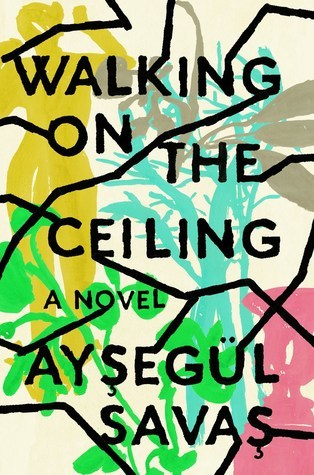More on this book
Community
Kindle Notes & Highlights
Some days, it’s difficult to believe that this friendship really existed—with its particular logic, its detachment from the world. What I remember has the texture of a dream, an invention, a strange and weightless suspension, like walking on the ceiling.
stories are reckless things, blind to everything but their own shape. When you tell a story, you set out to leave so much behind. And I have to admit that there is no shape in those long walks and conversations, even if I think of them often.
“What a waste. Your poor mother’s home.” This was a name they gave her afterwards—my poor mother.
The café regulars ate copious salads piled with meats, or a tagine served with pickles and dried fruits. Some days they had a glass of beer, other times they ended their meals with dessert. I was struck by how appropriate their choices seemed. How they managed to pick the most fitting dish for that hour of that particular day. I wondered how it was that people knew what to do. Small things, I mean. The rituals of a day. The hours.
Seeing all the people standing in the bakery line with purpose, the old man feels embarrassed and turns away from the steaming stacks of bread on the counter. When I first read this, I thought that the old man was embarrassed of the bread itself, and not just the people at the bakery, and I remembered this description when I came home from my walks, those first weeks in Paris. I would sit down at the kitchen table and feel the objects of the room taking note of my brief absence and prompt return, and I was embarrassed.
“Shame on you,” the aunts said when they called me in London to tell me that my mother was sick. By this, I thought that they might mean one of two things. The first, that a daughter should know without being told about her mother’s illness.
We heard him, my mother and I, in our separate rooms. I knew my mother heard him, too, I can’t say how. Silence is its own language.
Those who continue to talk of Istanbul’s beauty are certainly far away from it.
Istanbul presses down on us, heavier each day. It’s becoming harder to ignore it, even if I sometimes feel that I’m as much a stranger here as I was in Paris. But I know that the city is saying something and that its message is growing louder. I don’t doubt that its meaning will soon become clear, whether I listen to it or not.
“Apollodorus,” which was shorthand for forgotten writers, but also for the rapid passing of time. The name came from a few lines I read in Akif amca’s journal by a Greek poet, Apollodorus, from whose work only two lines of poetry survived. (Who at such a time / has come to the edge of the doorway?) In the journal, Akif amca had written that these lines were like “pillars excavated in the desert.”
I began to remember something about myself I had been looking away from. A wordless, soundless knowledge. I realized that I could look at it directly and it would have a surprising shape, neither ugly nor shameful.
(To be clear, his words made me happy. But I realize now that I had a way of sweeping away these moments casually, not giving in to my happiness.)
“All alone in those places,” they said, the way anyplace outside of Istanbul became plural when it signified separation, as if to underline the impossibility of reaching across the vast distance.
Stories have their own logic. For one thing, a story can only be told once it has an ending. For another, it builds, and then unravels. Each element of a story is essential; its time will come and it will ultimately mean something. In this way, stories are accountable, because they can look you in the eye.


